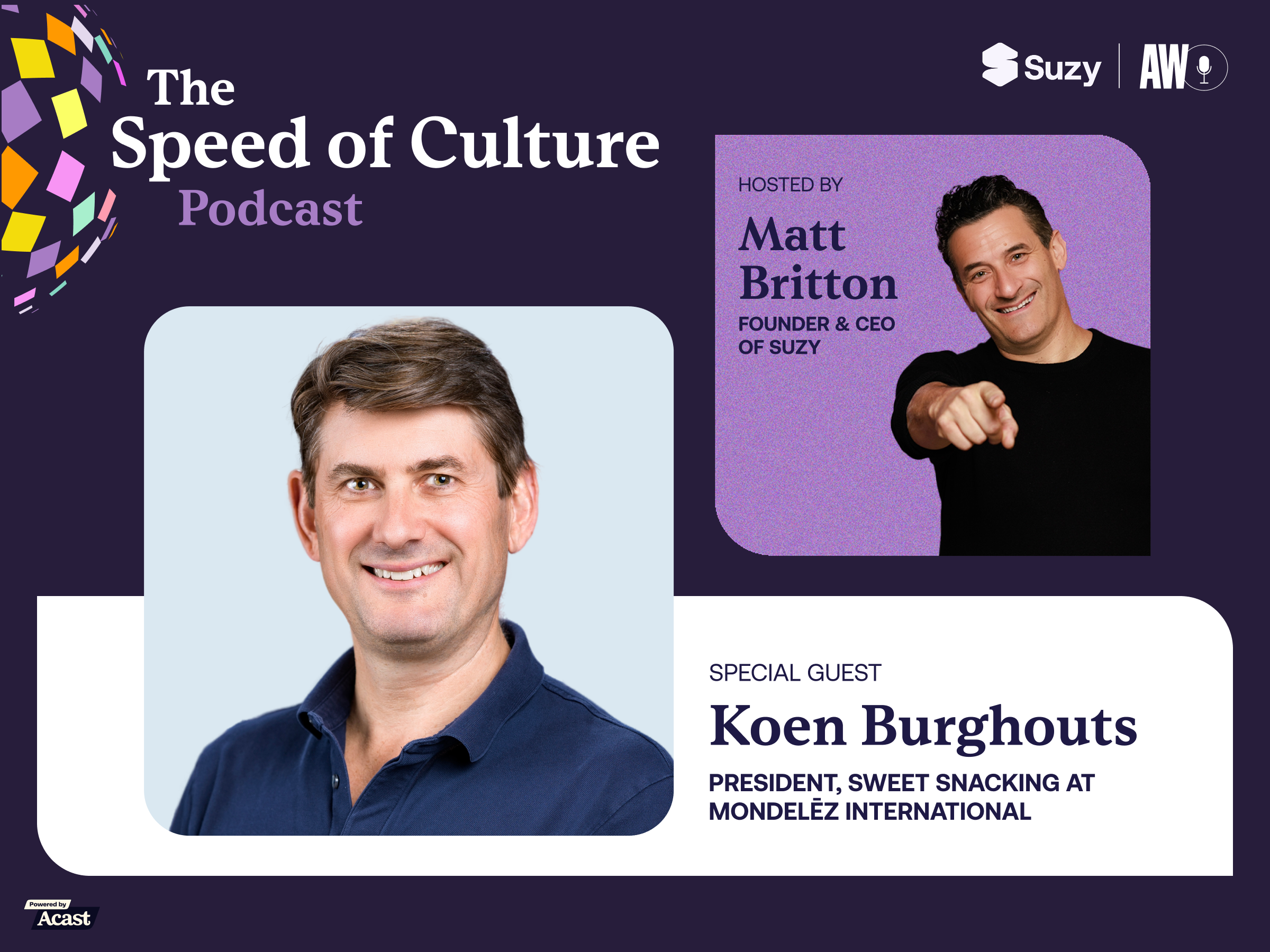By: Katrina Rodriguez, Associate Customer Success Manager
When my mom, now in her early 60s, heads to wineries with her friends—she’s not there for the wine. While her friends savor a glass or two of wine, she opts for her favorite “big girl drink”: Sprite with a dash of cranberry, garnished with a slice of fruit. It has the look of a cocktail, minus the alcohol, and has become her signature among the bartenders who know her order well. This playful preference, however, underscores a deeper generational shift. For her and many in her circle, holding a drink feels woven into the fabric of socializing—an unspoken norm. Meanwhile, younger generations are redefining the scene, where choosing not to drink is not only accepted but increasingly fashionable.
In contrast, I recently attended a gathering at a friend’s house where non-alcoholic wine was set out alongside the usual drinks—no explanations needed, just part of the spread. This shift reflects a larger trend: 65% of Gen Z and 58% of Millennials are open to switching from alcoholic beverages to non-alcoholic options in social settings, whereas only 35% of Gen X and 25% of Boomers share this openness. While younger generations comfortably embrace non-alcoholic choices, older generations are less likely to do so, often opting for more traditional drinks.
To dig deeper into these changing tastes, we ran a survey with Suzy, using advanced crosstabs in Data Explorer to break down responses by age group. The results? Clear generational differences in how each group views health, flavor, and sustainability. These insights paint a lively picture of where the beverage industry is headed—and it’s only getting more exciting as we look toward 2025.
Breaking Down Beverage Trends by Generation
Each generation is reshaping the beverage landscape in its own unique way. From Gen Z’s wellness-focused sips to Boomers’ emerging interest in sustainability, these insights reveal how brands can cater to the evolving tastes and values of each age group. Let’s dive into how Gen Z, Millennials, Gen X, and Boomers are defining what it means to drink well in 2025.
Gen Z: Boldly Shaking Up the Beverage Scene
Gen Z is leading a seismic shift in beverage preferences, pushing the boundaries of what it means to drink well. This cohort is embracing non-alcoholic alternatives with a strong emphasis on health and wellness. In Suzy’s survey, 25% of Gen Z respondents said they are drinking non-alcoholic alternatives like mocktails or non-alcoholic beer at least once a week, showing a clear trend toward mindful drinking. They’re also turning to wellness-focused beverages, with 41% saying that they consumed functional options like kombucha and 21% embracing CBD-infused drinks within the past 3 months.
Even when Gen Z drinks alcohol, it’s often with a cautious approach. A recent article in Forbes highlighted that Gen Z consumes about 20% less alcohol than Millennials, and Suzy’s survey echoes this trend: 40% of Gen Z drinkers report consuming alcohol less than once a month or not at all, underscoring a broader movement toward balance and moderation.
Gen Z’s adventurous spirit extends to flavor exploration as well. According to DataEssential's Future of Drink report, this generation gravitates toward unique profiles like botanical and savory options, such as pickle seltzers, as well as global flavors, including ube cream liqueur and tamarind-infused cocktails.
While Gen Z isn’t alone in their love for personalization, they’re leading a growing demand for unique drink experiences. In fact, 42% of consumers overall prefer customizable beverages, such as DIY drink kits or tailored menu options, according to Continuous. Brands that embrace these personalized experiences are likely to resonate with Gen Z and stand out in the coming years.
Millennials: Crafting Convenience and Wellness in Every Sip
Millennials are also redefining what it means to drink well, blending convenience and wellness into their drinking habits. According to Suzy’s survey, 54% of Millennials agree that their beverage choices should contribute to health and wellness, and this health-consciousness is driving their preference for functional and plant-based beverages. While they still enjoy a good drink, many are opting for low-alcohol and ready-to-drink (RTD) options that seamlessly fit into their routines.
Millennials are also highly motivated by sustainability, with 62% indicating that it’s an important factor in their beverage choices for 2025. Brands that offer eco-friendly packaging and transparent sourcing are likely to win their loyalty as they continue to seek options that align with their values.
Gen X: Exploring New Tastes Without Sacrificing Tradition
Gen X tends to stick to classic beverages but is showing a growing interest in lighter alternatives. According to Suzy’s findings, 32% of Gen X respondents choose non-alcoholic options, including mocktails and non-alcoholic beer or wine, across various social settings. This preference is strongest in casual gatherings and family celebrations, suggesting a growing desire for balance while still enjoying familiar drinks in social situations.
Boomers: Classic Preferences, New Wellness Focus
While Boomers have long favored traditional drinks like wine and beer, Suzy’s data indicates a shift toward wellness, with 18% of Boomers now choosing low- or non-alcoholic options monthly or more. Their awareness of environmental impact is also growing, with 40% of Boomers considering sustainability when selecting beverages, a notable change from past trends.
From Flavor to Sustainability: The Big Beverage Trends Defining 2025
As we look toward 2025, consumer preferences in the beverage industry are shifting in exciting ways. From adventurous flavors to eco-conscious choices, here are the key trends that brands need to know to stay ahead.
1. Global Flavors Drive Appeal
Younger consumers, especially Gen Z, are embracing bold, globally-inspired flavors. From pickle seltzers to ube cream liqueur and tamarind-infused cocktails, unique profiles are redefining what it means to drink adventurously. Brands that tap into these tastes are poised to capture attention.
2. Personalization is in Demand
With 42% of consumers seeking customized drink options—like DIY kits and tailored menu choices—personalization is key. Brands that prioritize these experiences are likely to stand out in an increasingly competitive market.
3. Sustainability is Non-Negotiable
Across generations, consumers are prioritizing sustainability. With 78% of Gen Z and 62% of Millennials considering it essential, brands that invest in eco-friendly packaging and ethical sourcing are positioned to gain loyalty across age groups.
4. Health and Wellness Drive Choices
Today’s consumers, especially younger ones, are looking for beverage options that align with their health goals. Low-sugar, non-alcoholic, and nutrient-rich beverages are gaining ground as they align with a more wellness-focused lifestyle.
The future of the beverage industry lies in diversity, health, and sustainability. As consumers embrace global flavors, personalized experiences, and eco-friendly options, brands that stay agile and data-informed will be poised to thrive. With insights from Suzy’s research, your brand can tap into these trends to engage consumers meaningfully and lead the way in the evolving world of beverages. Sip confidently into 2025, knowing your offerings resonate with what matters most to today’s consumers.
.webp)







.png)